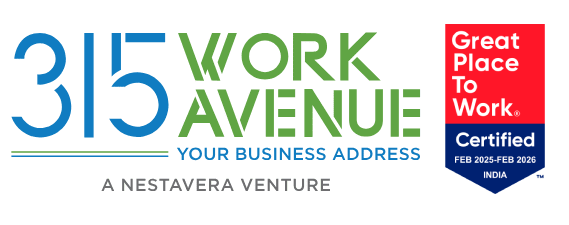Working professionals have multiple tasks in hand. They have to meet deadlines by completing tasks on time, prepare for the next day, review their work, and maintain a healthy work life balance in between all this. For them, time management is a necessity. In today’s fast-paced, distraction-filled environment, the ability to manage one’s time effectively. This blog seeks to improve productivity by telling about time management tips for working professionals.
Benefits of Time Management
Working professionals must know how to manage their time efficiently. Therefore, let’s examine the benefits of time management in our daily lives.
1. Improved Productivity: Effective time management allows you to accomplish more in less time. In the competitive work environment, it helps you work smarter, than work harder.
2. Decreased Stress: You may better handle work expectations without feeling overwhelmed when you manage your time efficiently. Stress reduction improves general health and job satisfaction.
3. Better Work Life Balance: You can devote adequate time to work, family, and personal interests when you manage your time well, which promotes a healthy work life balance.
4. Enhanced Career Opportunities: Time management skills are highly regarded by employers. Demonstrating your ability to meet deadlines and manage tasks efficiently can lead to career advancement.
5. Personal Growth: Effective time doesn’t just benefit your professional life, but your personal life as well. By giving you the time to follow your particular interests, meet your personal goals, and pick up new abilities, this ability may be of big value.

Time Management tips for Working Professionals
There are certain time management tips for working professionals that would help in managing time effectively :
1. Set Clear Goals and Priorities
The first step in effective time management is setting clear goals and priorities which will help you in avoiding any monotony you might face in your professional life.
– Define Your Goals: The first step is to know what are your long-term and short-term goals, in your professional and personal life. You’ll be able to concentrate more if you have a clear vision ahead of you.
– Prioritize Tasks: Make sure you identify the tasks which are important and schedule to complete them as per the requirement. The Eisenhower Matrix, which categorizes tasks into four quadrants (urgent and important, important but not urgent, urgent but not important, neither urgent nor important), can be a helpful tool for prioritization.
2. Create a Daily Schedule
An organized schedule is the foundation of efficient time management. It makes sure you set aside time for your essential duties while eliminating procrastination.
– Time Blocking: Divide your day into blocks of time dedicated to specific tasks or activities. For example, allocate a block of time in the morning for focused work, a block for meetings and collaboration, and a block for administrative tasks.
– Set Realistic Deadlines: Be realistic about the time needed to complete tasks. Setting overly optimistic deadlines can lead to stress and rushed work.
3. Embrace Time Management Tools
Given below are certain digital tools and applications that helps in time management for working professionals :
– Calendar Apps: Use calendar apps like Google Calendar or Microsoft Outlook to schedule appointments, meetings, and deadlines.
– Task Management Apps: Tools like Todoist, Trello, or Asana can help you organize your tasks and track your progress.
-Working professionals can make use of time-tracking apps to have a clear idea about how they spend their time, and make a proper plan.
4. Learn to Say No
Learning to say no is among the most difficult time management skills. While it’s important to be a team player, overcommitting can lead to burnout and compromised quality of work.
– Assess Your Capacity: Before accepting new tasks or commitments, assess your current workload and availability. Politely decline if you genuinely don’t have the time or resources to take on more.
– Delegate When Possible: If you have team members or colleagues who can take on certain tasks, consider delegating responsibilities to lighten your load.

5. Minimize Distractions
When you have distractions around you, it can affect your productivity significantly. It is important to identify these distractions and take necessary steps to minimize them.
– Digital Distractions: Turn off non-essential notifications on your devices during focused work periods. Consider using website blockers to prevent access to distracting websites.
– Physical Distractions: Organize your workspace to minimize physical distractions. Keep your desk clutter-free and designate a quiet area for concentration.
6. Take Regular Breaks
Contrary to common belief, taking breaks can enhance productivity. Taking short breaks can help you to recharge and regain energy, and maintain focus.
The Pomodoro Technique : This entails working for 25 minutes and then taking a 5-minute rest. Take a longer pause of 15 to 30 minutes after four cycles.
– Stretch and Move: Physical activity can boost your energy levels. Take short breaks to stretch, walk around, or do some quick exercises can be an effective tip for time management for working professionals.
7. Invest in Self-Care
Your wellbeing is closely related to how capable you are while managing your time. You should take care of your physical and mental health to sustain productivity.
– Get Adequate Sleep: Ensure you get enough quality sleep to stay alert and focused during the day.
– Maintain a Healthy Lifestyle: Regular exercise and a balanced diet contribute to your energy levels and overall well-being.
– Manage Stress: Practice stress management techniques such as meditation, deep breathing, or mindfulness to stay calm and composed.

Fundamental Component of Efficiency
For working professionals, there are several benefits of time management as this skill is a fundamental component of efficiency. You can use the tips and ideas in this blog as an outline to increase productivity, work with reduced stress, and ultimately establish a harmonious and healthy work life balance. You may regain control of your calendar and optimize each minute of your day by setting up specific goals, using time management techniques, assigning chores, and practicing mindfulness.
Time management is a skill that people develop over time, with different experiences in their life. The one thing to keep in mind is to use these skills according to the situations in your life. Time management tips for working professionals can help in identifying clear priorities, properly dividing chores and engaging in mindful exercises, which can help in establishing control over their schedule.




